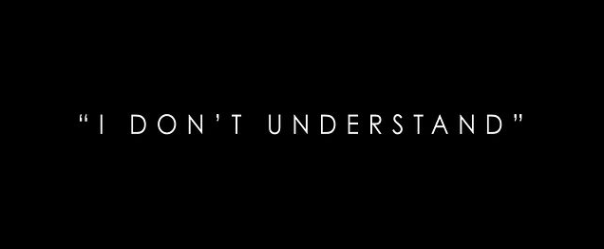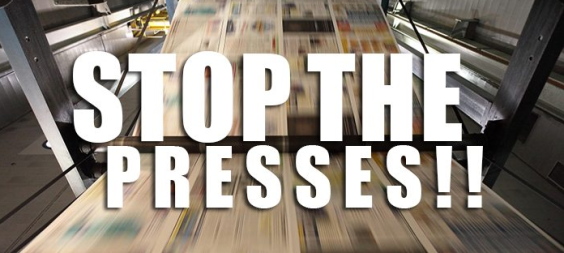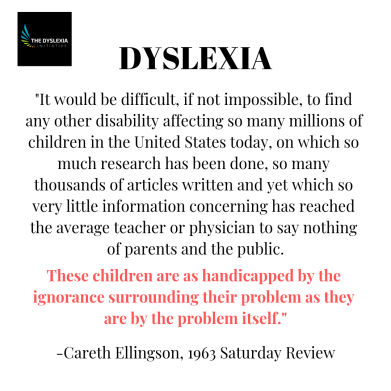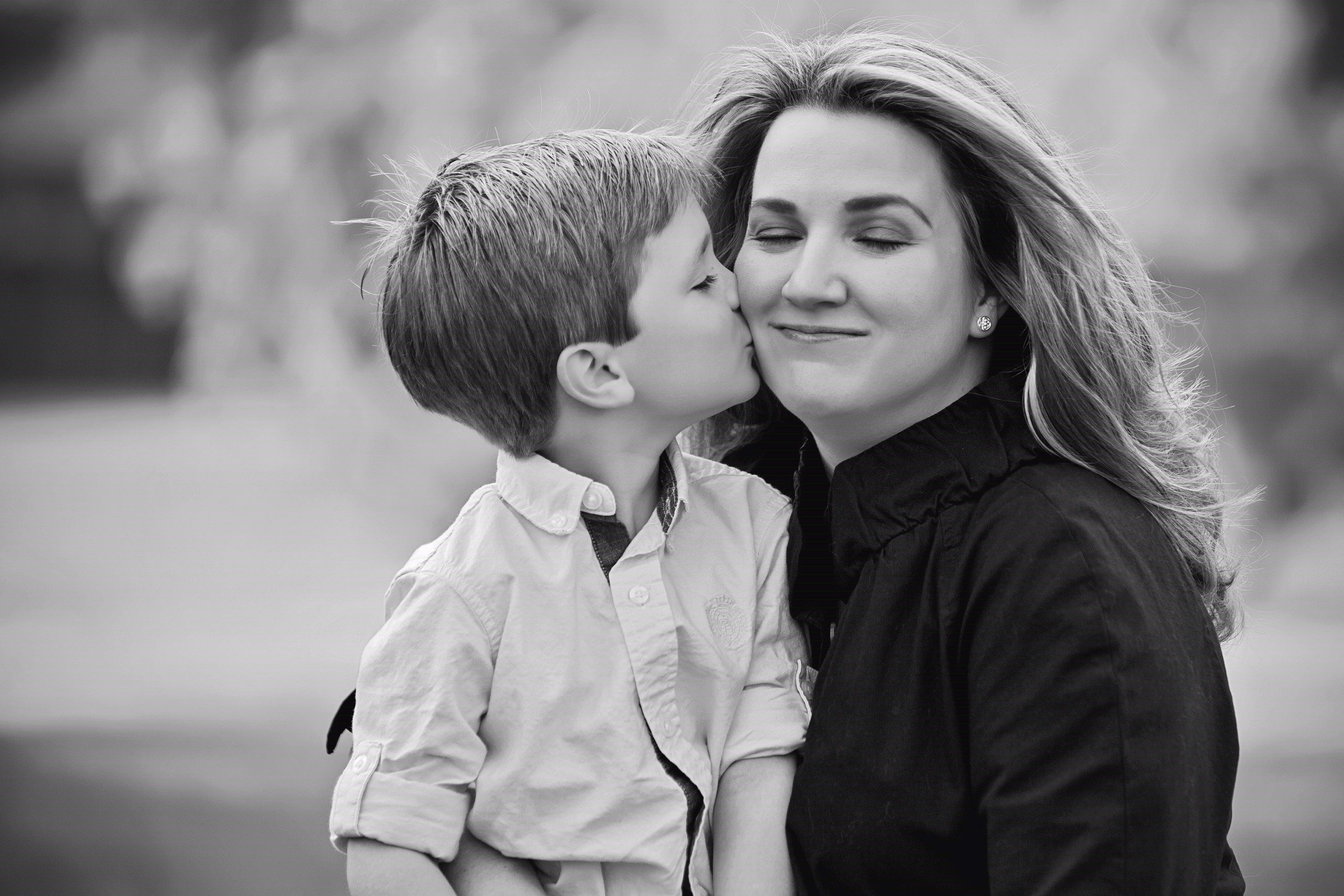
I am not dyslexic. I will never know what it is to be dyslexic.
Two years ago I attended a dyslexia simulation hosted by my local branch of the International Dyslexia Association. Here were the thoughts I shared on the experience:
Last night I attended a dyslexia simulation. It had been a long day so part of me didn’t want to go, but if I could catch a glimpse into my son’s world then I felt the 2-hour seminar was going to be worth it.
For anyone who has a child with a learning challenge like dyslexia, ADD / ADHD, Executive Function, Auditory Processing Disorder, etc. I highly recommend you attend a simulation.
For anyone who is a teacher, please please please please please please please, I beg you, find one and attend!!!!!!!!!
Even if you’re just curious, attend.
I was rocked to my core.
This wasn’t a pure dyslexia simulation as we the audience did not have dyslexia, therefore we couldn’t be “tricked” into seeing it, but the scenarios they set up had all of us extremely frustrated.
To my surprise, some of the group were angry and acting out, some of us, including me, shut down, we were all exhausted, most of us had headaches, and at one point all I did was laugh hysterically and uncontrollably as I had nothing left in me. The seminar instructors worked very hard to create content that would put us in that emotional state.
How do you “trick” the mind of an educated adult without a learning challenge?
Well, they did.
We were all very sad. We as parents were awe struck after experiencing, just during 2 hours, what our children feel every moment of every day. As a result, some were crying.
I was rendered speechless.
I can’t really describe much else. I don’t want to reveal what the scenarios were. What I experienced felt wildly personal and mine, just mine.
If 1 in 5 children is dyslexic that means 20% of the population.
There are 73,941,848 children in the US 18 years of age of younger. If 20% of the population is dyslexic that means 14,788,370 children are dyslexic.
Does that floor anyone else? That’s just dyslexia.
The fact of the matter is that while I was given the most fleeting of glimpses into the world my son experiences, I will never really understand, never really know.
I’m intelligent and empathetic so I’d like to know, but I can’t know what it’s like to be and experience a lot of things, for example what it’s like to live with cystic fibrosis or being a paraplegic, so why on earth would I ever think I can understand what my son experiences every single day?
The fact of the matter is the dyslexic voice matters, and honestly, it’s the only voice that really matters.
Yes, we are parent advocates and the insanity we are forced to wade through in order to force our schools to provide to our children what they’re entitled to is a very relevant voice.
The pain we feel knowing we’re sending our precious children onto a battlefield they didn’t ask for and are far too young to have to cope with, is gut wrenching, and a very relevant voice.
But, considering I’m not dyslexic myself, how would I really know what he faces, how he feels, how it impacts him mentally, emotionally? I mean really? He can try to describe it to me, but I will never see his reality, his truth, no matter how hard I try.
We are not designed to see any reality other than the one we have through our own individual senses and experiences. We never really know how the world is interpreted through another’s eyes.
Can we have sympathy? Yes.
Can we gain some understanding? Yes.
But to truly know? Never.
How then can we advocate for an enormously large segment of the population as non-dyslexic parent advocates, when we can never really know their truth?
The truth is we can’t. We can only advocate from our perspective.
Each person does see the world in a different way. There is not a single, unifying, objective truth. We’re all limited by our perspective.
-Siri Hustvedt
Which is why I said, the dyslexic voice is really the only voice that matters.
I can speak for my son, but I cannot really represent his truth, only my perspective of his truth, with the noise and filters of my life, my experiences and my lack of understanding.
Other parent advocates who are not dyslexic can do the same, but it will be filtered through their perspectives with the noise and filters of their lives, their experiences and their lack of understanding.
Well meaning and educated teachers can also do the same, but it will again be filtered through their perspectives with the noise and filters of their lives, their experiences and their lack of understanding.
We, the non-dyslexic advocates and parent advocates, can attempt to control the dialog too, but that will NEVER achieve what needs to be achieved, not really, not completely.
Yes, we can effect policy, enact and champion laws and pursue changes via the court system, but again that won’t be enough.
It is through the truth of the dyslexic voice that real change can be achieved, and through their voice alone.
Think of the impact if all 14,788,370 children that are dyslexic in this country stood up at the same time and demanded our attention. Would people take notice?
Undoubtedly.
The US Population is estimated to be 328,275,870. 20% = 65,655,174.
65 MILLION DYSLEXIC PEOPLE IN THE US!!!!!
If 65 Million people in the US stood up at once, would the world take notice?

Let’s just say I want to see that moment happen. It will be life changing.
5 million women in India formed a human chain to protest a temple ban and the world took notice.
The US dyslexic population is 13 times that.
Asking this isn’t easy. Trust me, I do know that.
There’s a lot of anxiety and strong emotions about the abuses that have taken place within the lives of our dyslexic citizens as the the lack of understanding, the lack of information that was (and still is) not being disseminated, the continued and willing disregard of what information had been shared had (and still has) a direct impact on their lives in the form of abuse and shame.

The above quote is from 1963 yet nothing has changed, not really, and certainly not meaningful enough.
I know it’s hard. I know it’s asking for a bravery I cannot understand. The dyslexic voice, your voice, your experience, your truth has meaning, is needed and should be shared. It needs to be heard. We need you to tell your truth.
We need you in order to make meaningful change happen.
#AreYouReadyToListen
#VoicesOfDyslexia

I am an education advocate for dyslexia! I have dyslexia. I have 3 dyslexic, dysgraphic , apraxia, ADHD sons ! I try to explain to the school how exhausting it is for myself and these kids! We will never outgrow dyslexia. Yes we have great gifts and coping skills but it is called survival! I love your message ! I wish the world could really see how we struggle and cope! I have transformed my boys into good students who believe they have a secret super power! They will tell everyone they have dyslexia and they are proud of it! We can’t make it a dyslexia negative the rest of the world does that for them already! Everyone deserves the opportunity to learn And strive to be the best!
LikeLike
Hi Shaunesy
Thank you for your message! So much truth!! If you’re interested in recording your truth there’s an effort underway to capture the verbal and / or written testimonies of adult dyslexics. It’s on Facebook and it’s called Voices of Dyslexia. Through my own parent advocacy I was inspired well over a year ago to create the archive and only recently got it off the ground. It’s a completely separate initiative from the blog and meant to be a source of truth. If enough people raise their voices then the hope is that we dispel the myths and get the education and resources we fight for today automatically given. Dyslexia is a civil rights issue and for too long have parents fought for services for their children. It’s time to change the conversation and shed light on dyslexia now and forever. I hope you’ll consider it. Best wishes to you!!
LikeLike
I am dyslexic. I am pretty sure it’s genetic as other members of my family, including my elementary aged son, are dyslexic, dysgraphic, face dyscacula (me!son!), have been diagnosed with ADHD or ADD, and have auditory processing disorder.
The first thing you should know is that I wasn’t diagnosed officially. We figured it out in my introduction to education class as a junior in college. Until then I had no idea I was reading books upside down and backwards. I just thought I had lousy spelling.
My father didn’t know until he was in his thirties.
My uncle was even older than that when he found out he was dysgraphic. His daughter, a SpEd teacher caught it.
You are asking people to stand up. I get that. I forced the testing for my son even though I knew from the moment he was born he would likely be dyslexic. No one wanted to test him until 7th grade when he would have been very far behind. So, you are asking people who may have NO idea that they headaches they get when they read books, computers, tablets and phones that in actuality they are slightly dyslexic. You are asking people to stand up, but we don’t know who those people are because, in most cases, testing doesn’t happen if people can pass the most basic reading test.
How about we all stand up and demand dyslexia testing in every elementary school? That way we can see just how pervasive dyslexia actually is in our society. How about we all stand up and demand schools go back to teaching reading through phonetics which are proven to help readers of almost every style?
I say this not because I don’t want to stand up. Believe me, I’m actually pretty good at standing up. I say this because it’s hard to stand up for a cause if you have no idea it’s your own.
LikeLike
L, thank you so much for your very true words and thank you for being here. I completely agree and see it in my own family. My son is the first one to actually be diagnosed in all of the generations of the family. One relative can talk about it, another really cannot, not in any way, the pain of being undiagnosed, shamed and treated as though he was stupid is still very real for him. Your suggestions on what to stand up and demand, I completely agree with. This particular post of mine was inspired by a dear friend of mine, a dyslexic herself, who is still trying to find her voice. This was born out of a number of conversations with her about the very real gap that exists in the advocacy world. Parent advocates, most of whom are not dyslexic, are controlling the dialog, and that needs to change. If you’re interested in sharing your personal story, we welcome your voice with open arms. On Voices of Dyslexia, which currently is only on Facebook, we are collecting testimonies. You can choose either written or interview format. Just something to consider. Our hope is, with enough voices raised, that dyslexia cannot be ignored and perpetually denied. Thank you again for your amazing comments. I definitely have taken them to heart. 🙂
LikeLike
My two sons have dyslexia, so needless to say, I am an advocate. My oldest was given services, but my younger son was denied services because he compensated better and didn’t score low enough on the test that Frisco ISD in Texas gave him even though statistics say that if you are a sibling of a dyslexic, you have a 50% chance of being dyslexic. Oh, and he was low in reading, phonologically and in fluency. Thanks, Frisco. Anyway, I became certified to teach in my early 40’s and I do understand and I do advocate for my students, so you have this teacher on your side. 😊
LikeLike
Hi Mellissa! Thank you for being here and for your comment. Have you read the new handbook? I was fortunate enough to attend a lecture this past Friday with Mary Durheim. The presentation she showed us will be given by her at each ESC. If you have the chance to attend one I highly recommend doing so. We’ve still got a long way to go but the language is clearer in several ways, i.e. must instead of shall, etc. If you download the version (or buy it bound and with tabs) from Region 10 right now there are still a handful of typos on it that they’re working on. On 1/31/19 the 5 chapters will be codified into law by the SBOE so that will be in our favor as well. I’d love to know how things go with your advocacy for your son who they’re denying. FYI this blog is my family’s story but I also run Dyslexic Houston and The Dyslexia Initiative on Facebook and my partners on The Dyslexia Initiative run North Texas Dyslexia which is a page and North Texas Dyslexia Parents Group. Across these pages we share pretty much the same material. We’d love to help and support you in any way we can.
LikeLike